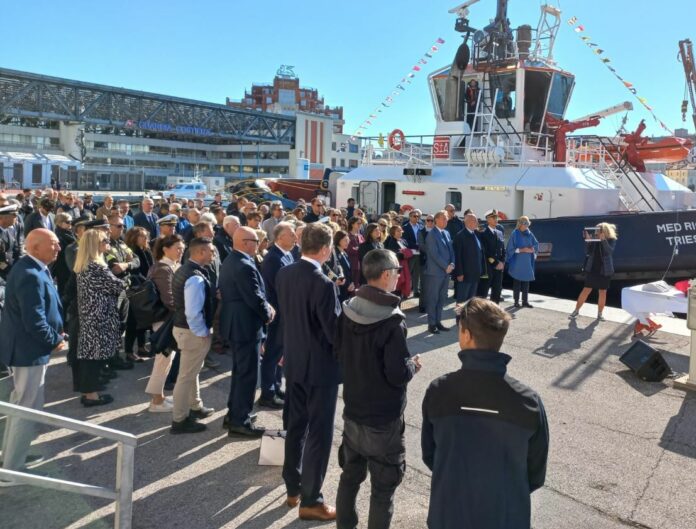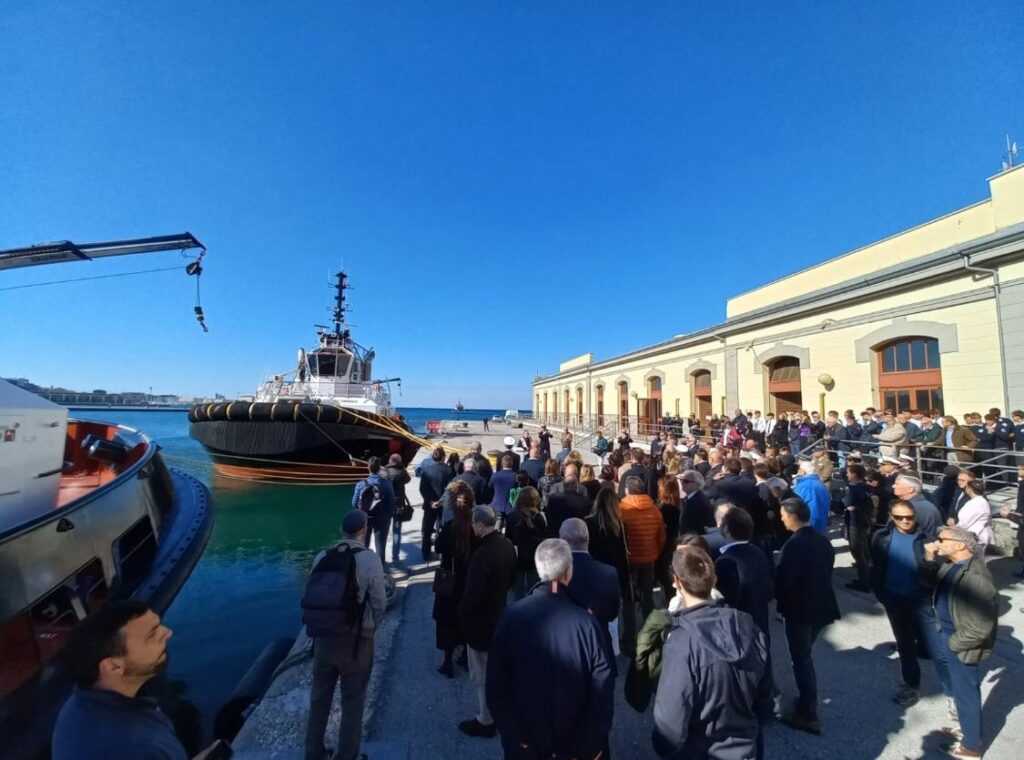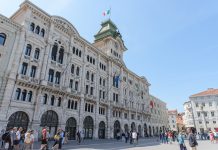
by InTrieste
In a ceremony held at the Port Authority of Trieste on Thursday, regional and environmental leaders celebrated the introduction of two new tugboats — Captain Cat and Med Rigel — underscoring Trieste’s growing prominence in Italy’s maritime sector and its commitment to sustainable port development.

Alessia Rosolen, Friuli Venezia Giulia’s Regional Councillor for Labor, Education, Research, and Family, attended the event on behalf of Governor Massimiliano Fedriga. Rosolen praised the dedication of maritime workers and highlighted the city’s strategic investment in its relationship with the sea.
“Today we celebrate the hard work and total dedication of those who operate daily at sea to ensure safety and the common good,” she said. “Trieste has chosen to invest decisively in its connection to the sea, becoming a key player in both the national and international maritime economy. For this reason, the Friuli Venezia Giulia Region continues to support maritime professions with resources, training, and technological innovation — but also with passion.”
The unveiling of the two tugboats, hosted by Trieste-based company Tripmare, drew attention not only for its industrial significance but also for its environmental implications. Fabio Scoccimarro, Regional Councillor for Environmental Protection, commended Tripmare for what he described as “a forward-looking investment” that represents a step toward a sustainable, efficient, and innovative port model.
“The adoption of cutting-edge technology by Tripmare reflects a clear and modern industrial vision — one that balances development with environmental protection,” Scoccimarro said. “This commitment helps define the identity not only of the port but of the entire territory.”
He added that ecological transition requires more than slogans: “It is achieved through strategic investments and concrete choices like this one, which strengthen the Port of Trieste’s standing as a European model for green ports.”
Scoccimarro emphasized the importance of collaboration between public institutions and private enterprise. “This is a virtuous example of how the public and private sectors can move forward together,” he said. “The Region sets a clear course toward a sustainable future, and companies respond with investment, vision, and responsibility. That’s how we build a strong territorial system — one capable of combining competitiveness, innovation, and environmental protection.”
The Captain Cat and Med Rigel were designed for multiple operations, including ship docking and undocking, firefighting, oil spill containment, and coastal and offshore towing of large vessels.
With these additions, Trieste continues to position itself as a maritime hub that combines industrial innovation with a firm commitment to sustainability — a balance that regional officials say is key to the city’s economic and environmental future.






























